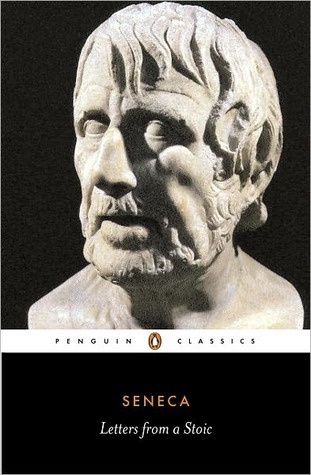More on this book
Community
Kindle Notes & Highlights
But I have been haranguing against Baiae long enough; although I never could harangue often enough against vice. Vice, Lucilius, is what I wish you to proceed against, without limit and without end. For it has neither limit nor end. If any vice rend your heart, cast it away from you; and if you cannot be rid of it in any other way, pluck out your heart also. Above all, drive pleasures from your sight. Hate them beyond all other things, for they are like the bandits whom the Egyptians call "lovers," [The Egyptians used the word in the sense of "knave" or "foot-pad." The word is found in the
...more
Of course I would not prevent you from listening also to those philosophers who are wont to hold public meetings and discussions, provided they appear before the people for the express purpose of improving themselves and others, and do not practise their profession for the sake of self-seeking. For what is baser than philosophy courting applause? Does the sick man praise the surgeon while he is operating?
And I ask you, would you not say that one was the greatest of fools who believed that a lamp was worse off when it was extinguished than before it was lighted? We mortals also are lighted and extinguished; the period of suffering comes in between, but on either side there is a deep peace. For, unless I am very much mistaken, my dear Lucilius, we go astray in thinking that death only follows, when in reality it has both preceded us and will in turn follow us.
Yes, for there is no more virtue in accepting death when one hates life, than there is in leaving a place when one is ejected.] For what virtue is there in going away when you are thrust out? And yet there is virtue even in this: I am indeed thrust out, but it is as if I were going away willingly. For that reason the wise man can never be thrust out, because that would mean removal from a place which he was unwilling to leave; and the wise man does nothing unwillingly. He escapes necessity, because he wills to do what necessity is about to force upon him.
For the man who has fled from affairs and from men, who has been banished to seclusion by the unhappiness which his own desires have brought upon him, who cannot see his neighbour more happy than himself, who through fear has taken to concealment, like a frightened and sluggish animal. - this person is not living for himself he is living for his belly, his sleep, and his lust, - and that is the most shameful thing in the world.
The place where one lives, however, can contribute little towards tranquillity; it is the mind which must make everything agreeable to itself. I have seen men despondent in a gay and lovely villa, and I have seen them to all appearance full of business in the midst of a solitude.
Words seem to distract me more than noises; for words demand attention, but noises merely fill the ears and beat upon them.


